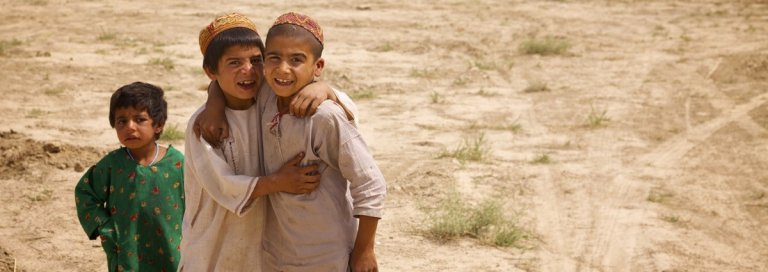
Two Afghan university students are offering underprivileged school children free computer skills workshops to help prepare them for the digital future.
Arifa Orfan, with the help of Habiba Husaini, plans to teach the kids in their language, to give them relevant skills for employment.
It is estimated that 85 percent of jobs today’s learners are expected to be doing in 2030 have yet to be invented. And with the majority of that speculated to be in technology, digital skills are paramount for today’s youth.
Decades of conflict have devastated Afghanistan’s education system, according to The Asia Foundation.
Girls face disproportionately high barriers to education in Afghanistan due to a lack of girls schools, a third of girls being married before turning 18 and societal scars left by the Taliban, explained Human Rights Watch.
But the potential for technology in education is quickly increasing, with 80 percent of the population now owning smartphones and Internet access in rural communities improving, reported The Asia Foundation.
Arifa aims to teach children applicable skills, such as the basics of building their own website using simple programming languages such as ‘Scratch’, according to the Times of India.
“Even if you learn C [a specific coding language] or anything like that, immediate job opportunities are few. Also, these are school students with no prior knowledge of computers; hence programing language may be very hard for them,” she said.
“If they can make a website, they may find employment with local people as many start-ups there may want a website. Once the students develop a liking for computers, they can try and learn other languages as well.”
Afghan girl aims to change education system, one line of code at a time https://t.co/nl9my4f9GD via @TOICitiesNews
— Ms. Arifa Orfan (@arifa_orfan) February 21, 2018
Professor Shahrevar Davierwala, Arifa’s technical advisor at the Symbiosis Institute of Computer Studies and Research, is helping with her project.
“Many children in their home countries — especially if they come from under-developed countries — have no exposure to what is happening in the academic world outside. I wanted to help change this,” said Prof Shahrevar.
“What we need is quality material that is easy for students to learn and also helps them in building skills that will eventually help them find employment. Once the website is up and running, we will start other courses such as C, C+ Java etc. But whatever happens, the learning material will remain free.”
Liked this? Then you’ll love…
Why schools need to encourage girls to code
UN calls for more investment in STEM education for girls, women







